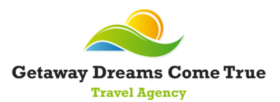TRAVEL TIPS
Money
Because of inflation and currency fluctuations, it's difficult to give exact exchange rates. It's safe to say, though, that the region is a good value, with high-quality accommodations and food at about two-thirds or half the cost they would be at home.
A bottle of good South African wine costs about the equivalent of $9 (double or triple in a restaurant), and a meal at a prestigious restaurant won't set you back more than $50 per person; an average restaurant, with wine, might be about $40 for two. Double rooms in the country's finest hotels may cost $400 a night, but $200 is more than enough to secure high-quality lodging in most cities, and charming, spotless B&Bs or guesthouses with full breakfasts can be less than $80 in many areas.
Not everything in South Africa is cheap. Expect to pay international rates and more to stay in one of the exclusive private game lodges in Mpumalanga, Limpopo Province, or KwaZulu-Natal—with a fly-in charter figured into the price, expect to pay between $2,000 and $3,000 per couple per night. Flights to South Africa are expensive, but the rash of new low-cost carriers makes popular domestic routes less expensive, with most trips less than $150 one way. Taxis are uncharacteristically expensive, compared with other vacation needs.
ATMs and Banks
South Africa has a modern banking system, with branches throughout the country and ubiquitous ATMs, especially at tourist attractions, in gas stations, and in shopping malls. Banks open at 9 in the morning weekdays and close at 3:30 in the afternoon; on Saturday they close at 11 in the morning, and they are closed Sunday (with the exception of Standard Bank branches in shopping malls, some of which are open on Sunday, 9:30–1). Many banks can perform foreign-exchange services or international electronic transfers, but you will always get a better exchange rate from an ATM. The major South African banks are ABSA, First National Bank, Nedbank, and Standard.
If your card gets swallowed, stay at the ATM and call the help line number displayed. If possible, withdraw money during the day and choose ATMs with security guards present or those inside stores.
Credit Cards
MasterCard, Visa, and American Express are accepted almost everywhere, but Diners Club and Discover are not.
It's a good idea to inform your credit-card company before you travel, especially if you're going abroad and don't travel internationally very often. Otherwise, the credit-card company might put a hold on your card owing to unusual activity—not a good thing halfway through your trip. Record all your credit-card numbers—as well as the phone numbers to call if your cards are lost or stolen—in a safe place, so you're prepared should something go wrong. MasterCard, Visa, and American Express all have general numbers you can call collect if you're abroad.
If you plan to use your credit card for cash advances, you'll need to apply for a PIN at least two weeks before your trip. Although it's usually cheaper (and safer) to use a credit card abroad for large purchases (so you can cancel payments or be reimbursed if there's a problem), note that some credit-card companies and the banks that issue them add substantial percentages to all foreign transactions, whether they're in a foreign currency or not. Check on these fees before leaving home, so there won't be any surprises when you get the bill.
Reporting Lost Cards
American Express. 800/528–4800; www.americanexpress.com.
Diners Club. 0860/346–377; 011/358–8500; www.dinersclub.com.
MasterCard. 800/990–418; www.mastercard.com.
Visa. 0800/990–475; 1303/967–1090; www.visa.com.
Currency and Exchange
The unit of currency in South Africa is the rand (R), with 100 cents (¢) equaling R1. Bills come in R10, R20, R50, R100, and R200 denominations, which are differentiated by color (beware of the similar color of the R50 and R200 notes). Coins are minted in 5¢, 10¢, 20¢, 50¢, R1, R2, and R5 denominations.
At this writing, the rand is trading at about R11 to $1. It's a good bargain given the quality of lodgings, which cost probably two-thirds the price of comparable facilities in the United States.
To avoid administrative hassles, keep all foreign-exchange receipts until you leave the region, as you may need them as proof when changing any unspent local currency back into your own currency. You may not take more than R25,000 or US$10,000 in cash in or out of South Africa. For more information you can contact the South African Reserve Bank.
Even if a currency-exchange booth has a sign promising no commission, rest assured that there's some kind of huge, hidden fee. And as for rates, you're almost always better off getting foreign currency at an ATM or exchanging money at a bank.
Currency Conversion
Oanda.com. www.oanda.com.
XE.com. www.xe.com.

